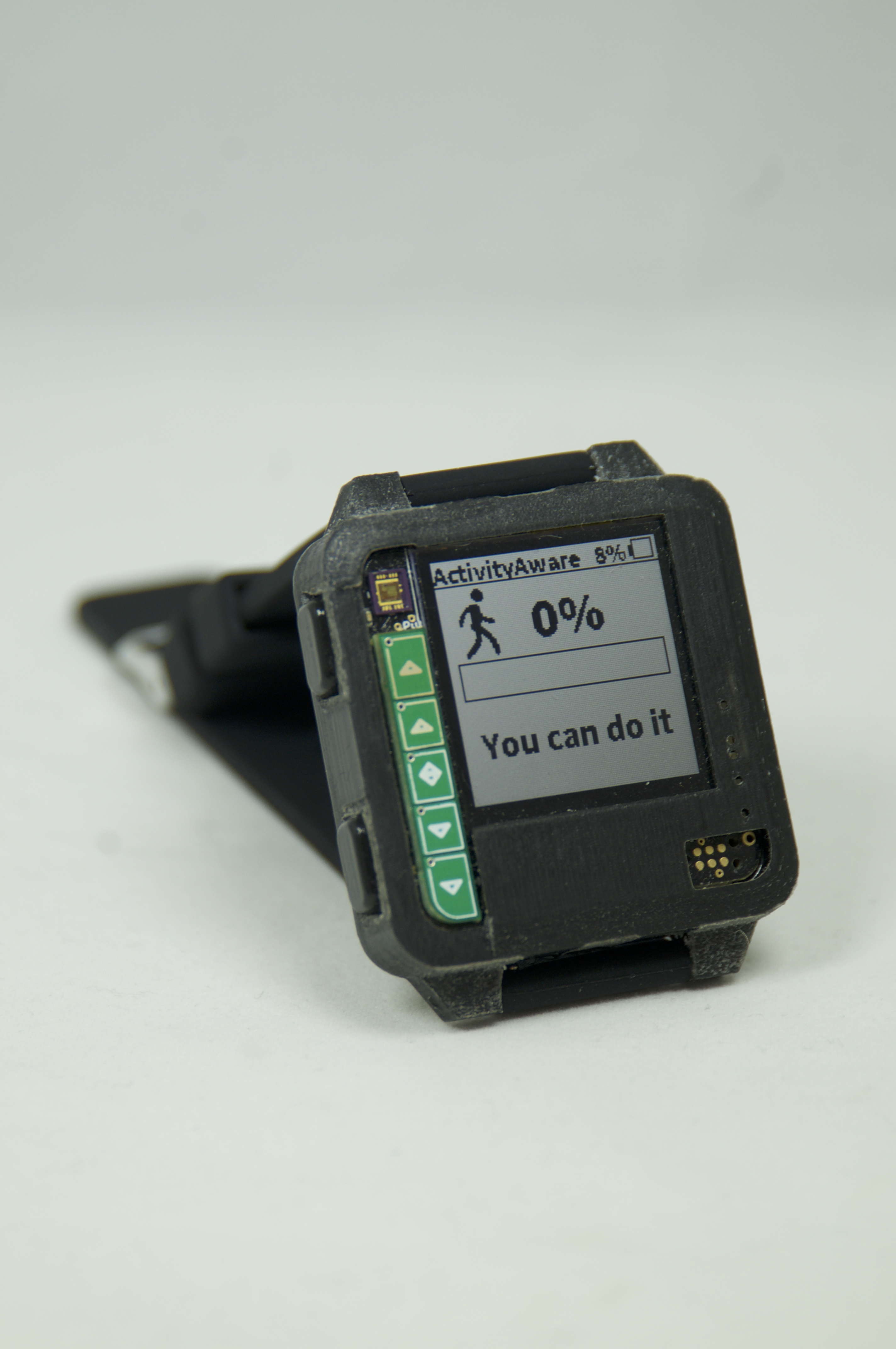The Amulet Project
The Amulet Project envisions computational jewelry, in the form of a bracelet or pendant, that provide the properties essential for successful body-area mHealth networks. These devices coordinate the activity of the body-area network and provide a discreet means for communicating with their wearer. Such devices complement the capabilities of a smartphone, bridging the gap between the type of pervasive computing possible with a mobile phone and that enabled by wearable computing. Find more information on the Amulet Project Website
The Amulet Platform is a major step towards fulfilling this vision. The generalized platform is comprised of hardware and software for developing energy- and resource-efficient applications on multi-application wearable devices. This includes:
- the Amulet Firmware Toolchain
- the Amulet Runtime
- the ARP-View energy prediction and insight graphical tool (check out a demo here)
- open reference hardware.
Amulet allows developers to interactively explore how their implementation decisions impact battery life without the need for hardware modeling and additional software development. Amulet represents a new approach to developing long-lived wearable applications. We envision the Amulet Platform enabling long-duration experiments on human subjects in a wide variety of studies.
We also aim to equip the health-behavior science community with a wearable platform researchers can field for long-duration experiments on human subjects in a wide variety of studies, by providing the entire Amulet Platform as an open-source, open-hardware alternative to the available commercial platforms that have so far been used for wearables research. We envision the Amulet Platform as being broadly applicable to those in the sensing communities, as well as domain scientists and practitioners in human-centered fields like health and fitness. With the Amulet Platform, sensor researchers can prototype new wearable devices and test new sensing technology without building from scratch.
Getting Started
To learn how to obtain hardware, setup your dev environment, and program an Amulet refer to this guide.
Contributors and Acknowledgements
Amulet is an ongoing collaboration between Dartmouth College and Clemson University.
Dartmouth College:
- Ryan Halter (Engineering): Co-PI; Assistant Professor of Engineering.
- David Kotz (Computer Science): Principal Investigator; Professor of Computer Science.
- John Batsis (Geisel School Of Medicine)
- Taylor Hardin (Computer Science): graduate student.
- Sarah Lord (Psychiatric Research Center)
- Jasmine Mai (Computer Science): undergraduate student.
- Varun Mishra (Computer Science): graduate student.
- Patrick Proctor (Computer Science): programmer.
- Ron Peterson (Computer Science): senior programmer.
- Gunnar Pope (Engineering): graduate student.
Clemson University:
- Kelly Caine (Human Centered Computing): Co-PI; Assistant Professor of Human-Centered Computing.
- Josiah Hester (Computer Science): graduate student, now at Northwestern.
- Vivian Motti (Human Centered Computing): now at George Mason University.
- Ryan Scott (Computer Science: Graduate Student.
- Jacob Sorber (Computer Science): PI; Assistant Professor of Computer Science.
- Byron Lowens (Human Centered Computing): graduate student.
Former members:
- George Boateng (Engineering): graduate student; now at ETH Zurich.
- Eric Chen (Computer Science): undergraduate student.
- Kevin Freeman (Computer Science): graduate student.
- Bhargav Golla (Computer Science): graduate student.
- Emily Greene (Computer Science): undergraduate student; now at Amazon.
- Steven Hearndon (Computer Science): graduate student.
- Hilary Johnson (Engineering): undergraduate student.
- Anna Knowles (Computer Science): undergraduate student.
- Andrés Molina-Markham (Computer Science); now at RSA Labs.
- Emma Oberstein (Computer Science): undergraduate student.
- Travis Peters (Computer Science): graduate student.
- Joseph Skinner (Engineering): technician.
- Tianlong Yun (Computer Science): now at Google.
This research results from a research program at the Institute for Security, Technology, and Society, supported by the National Science Foundation under award numbers CNS- 1314281, CNS-1314342, and TC-0910842, and by the Department of Health and Human Services (SHARP program) under award number 90TR0003-01. The views and conclusions contained in this document are those of the authors and should not be interpreted as necessarily representing the official policies, either expressed or implied, of the sponsors.
License
Copyright 2016 by the Trustees of Dartmouth College and Clemson University,
and distributed under the terms of the "Dartmouth College Non-Exclusive Research
Use Source Code License Agreement" (for NON-COMMERCIAL research purposes only),
as detailed in a file named LICENSE.pdf within this repository.
Please find our full license here.
Attribution
Please find a list of software used in the development of Amulet here.
Issues
Please use Github's Issue tracking software to submit any issues or concerns regarding Amulet software or hardware.
